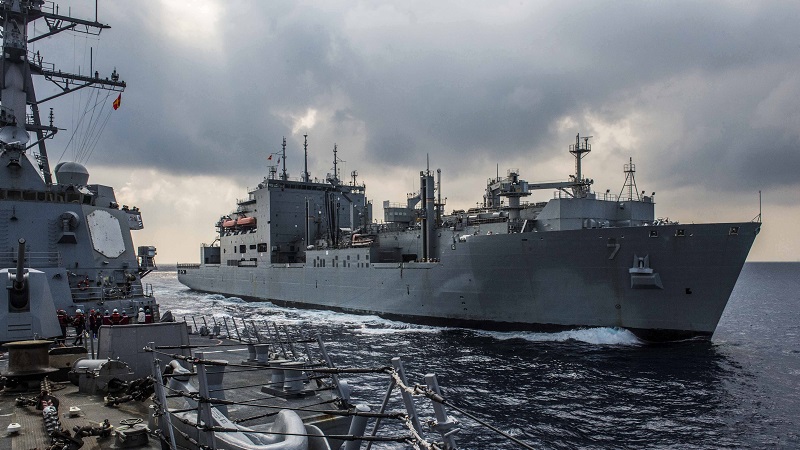Canberra’s sensible South China Sea stand is contingent on continued pragmatism in Beijing
March 18 2017

By Bob Carr
Note: This article appeared in The Australian, March 18 2017.
It’s a reasonable bet Australians would be more comfortable with a democratic China; that is, a China boasting competing political parties in an elected legislature, buttressed by robust freedom of expression.
Foreign Minister Julie Bishop’s remarks in Singapore on Monday on the value of democracy, aimed at China, are the kind of thing that may be laid down for the record — once in a while — before resuming normal diplomacy. A country with thousands of years of cultural continuity won’t change its political system because of lectures by Westerners. US Democrat Nancy Pelosi spoke in the early 1990s of China introducing freedom of expression under American pressure. Henry Kissinger commented wryly on this naive notion that pressure from the US congress could produce freedom of speech and the press, which has never existed in five millennia'.
China is undergoing a demanding economic transition to lift 850 million more people into the middle class by 2030. It is bold and risky. China’s leaders are unlikely to choose this moment to surrender their authority. China will liberalise if its middle class begins to expect it, as in Singapore or South Korea, or a reformist leader sponsors it, as in Taiwan or Myanmar.
Right now the West has chosen to deal with China as it is, pragmatically drawing it into global governance. Australia, too, is running a pragmatic China policy. The most striking proof is the South China Sea.
To the disappointment of Australia’s hawks, it is plain as a pikestaff that Australia will not be running US-style patrols there. Last month Bishop met US Secretary of State Rex Tillerson. According to The Australian Financial Review, she told him: 'Australia will not change its past behaviour in the South China Sea and not escalate tensions with Beijing.'
Despite speculation on two occasions, Australia has not attempted to recruit Indonesia for patrols. Bishop categorically ruled this out in Jakarta on March 6. Note the significance of this. As with our decision to join the China-sponsored Asian Infrastructure Investment Bank, Australia is saying no to US attempts to enlist us to an anti-Chinese posture. Perhaps the lecture on democracy provides cover.
Yet 18 months ago it had looked almost inevitable that Australia would be recruited to challenge China’s island-building. Three US admirals — their brass glinting and medals tinkling — had dropped strong hints.
As recently as last December, Admiral Harry B. Harris urged Australia to run its own freedom-of-navigation operations.
For Canberra, the proposition was problematic on two grounds.
First, no other American friend, partner or ally — not India, Japan or any European nation — had the remotest interest in jamming its navies into the 12-nautical mile radius around China’s claimed territory. We would be the only one, typecast as a gallant and gullible ally. Second, Canberra had to consider the views of Southeast Asian countries, on whose behalf we would be challenging China.
And they were all dealing with China. According to Chinese sources, Philippines President Rodrigo Duterte went to Beijing on October 19 to seek an alliance with China, despite China’s non-alignment policy. China has been astute enough to allow Philippines fishing vessels access to waters around Scarborough Shoal, which lies within The Philippines’ exclusive economic zone.
Just as striking, Vietnam also has decided to seek a diplomatic accommodation with China over maritime territorial disputes. Following the visit to Beijing in January by Nguyen Phu Trong, General Secretary of the Vietnamese Communist Party, both countries issued a joint communique pledging to 'manage well their maritime difference'.
Against this background the Canberra orthodoxy was captured by Angus Houston, former Australian Defence Force chief, in a speech last month. He came down against the notion of freedom-of-navigation operations, arguing they 'could provoke a response, a military response', and added: 'I think it’s all about diplomacy in the first instance.'
His views were endorsed by Defence Minister Marise Payne as a 'constructive contribution'. A top military man says it would be foolish to run these patrols and the Defence Minister endorses his comments: cue heartfelt lamentations among Australian Cold Warriors, tears of frustration in the staff cafeteria at the Australian Strategic Policy Institute.
Australian diplomacy should be directed at leading the Trump administration to pragmatic engagement with China and urging China to freeze militarisation of its artificial islands — doing so with the extra clout we enjoy because the Chinese know we have so far declined patrols with the US but could always change our minds.
For its part, China is handling the Trump administration with restraint, as a survey of its media responses to Donald Trump confirms. This survey, conducted by the Australia-China Relations Institute, shows Chinese official opinion is eager for dialogue with the Americans. Presidents Trump and Xi Jinping are scheduled to talk at Mar-a-Lago in Florida next month.
The Financial Times last Saturday reported the anti-China views of Trump’s National Trade Council director, Peter Navarro, are being challenged by others in the administration. The White House may be listening to US business and veering away from a trade war.
Houston said: 'It is too late to stop the China program in the South China Sea.'
He is right, given that The Philippines and Vietnam are negotiating with China and none of the other ASEAN states is agitating against it.
But if China begins dredging at Scarborough Shoal, it will incinerate this marked diplomatic success. It would lose its rapport with The Philippines. The US would likely send in warships.
David Shambaugh argues in his book China’s Future that the Chinese foreign policy establishment may be divided into nationalists and cosmopolitans. China would be ill-advised to allow its hardliners to inflame tensions and, among other things, force Australia to reconsider its non-provocative, pragmatic diplomatic stance, which is now installed as official government policy.
Bob Carr, a former NSW premier and Australian foreign minister, is Director of the Australia-China Relations Institute at the University of Technology Sydney.

